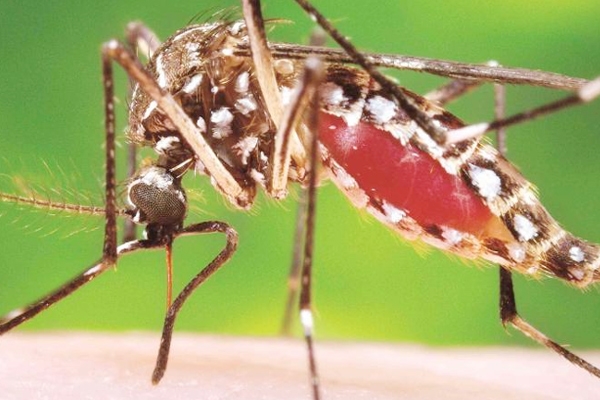
Florida researchers have found two more new invasive mosquito in US mainland which carries tropical diseases, the mosquitos were trapped near Florida’s Everglades.
The scientists who were involved said this could raise the risk of mosquito-borne viruses which can reach people and birds, but according to health officials, it was too early to sound an alarm.
The new arrivals from Latin America and the Caribbean — Culex panocossa and Aedeomyia squamipennis — were trapped in October last year in rural areas bordering Everglades National Park by University of Florida Institute of Food and Agricultural Sciences entomologist Nathan Burkett-Cadena and Florida Medical Entomology Laboratory researcher Erik Blosser.
Their recent research has being published in the Journal of Medical Entomology and the journal Acta Tropica.
In the traps, they discovered that native species were crowded out by thousands of Culex panocossa mosquitoes and hundreds of Aedeomyia squamipennis mosquitoes.
Both the mosquito species can be found on a few Caribbean islands as well as from Mexico into South America. These mosquitos lay their eggs on water lettuce — and spread through weeds that float in the canals, drainage ditches and other waterways crisscrossing to Florida neighborhoods.
Burkett Cadena said that "'Hundreds of mosquitos are substantial, particularly when we get them from a single trap. This is not just a single specimen that blew in the mainland from a storm — these are reproducing species."
Around fifteen disease spreading mosquitoes now live in Florida, in which nine of the specie’s have arrived in the last decade. Aedes aegypti also known as the yellow fever mosquito and it is blamed for spreading the Zika virus, along with dengue fever and chikungunya.
Brukett Cadena said, that the arrival of new species is an another sign of climate change, also with increased tourism and global trade, which has made Florida more hospitable to these exotic species.
Health officials has declined all the immediate cause for concern and said more research upon was required.
Florida Department of Health spokesperson Mara Gambineri said on Tueday, they have seen some invasive mosquito species in Florida that have become significant and others that have not."
Roughly one out of 200 mosquito species worldwide are known for transmitting diseases to humans, Culex panocossa can spread Venezuelan equine encephalitis, a family of viruses that includes the Everglades virus.
The native Florida mosquito Burkett-Cadena and Blosser were hoping to trap also can infect humans with Everglades virus, but it rarely has the opportunity to do so because humans rarely venture into its remote wetlands habitat.
Aedeomyia squamipennis spreads malarias in birds, which also included the kinds that have destroyed the Hawaii's native bird populations. These species are already found in Florida, but the introduction of a new carrier that feeds predominantly on birds could be worrisome for struggling Florida birds, Burkett-Cadena said.
Gambineri said there are many factors which can determine whether a disease-carrying ispecies becomes a significant concern, such as its choice of host, its habitat, its tolerance of cooler temperatures and competition from other species.
Janet McAllister, a medical entomologist with the American Centers for Disease Control and Prevention, said the other species which are capable of transmitting Venezuelan equine encephalitis already live in America. The most recent American outbreak was in the 1970s, infecting humans and horses in Texas and Louisiana.
AMandeep







